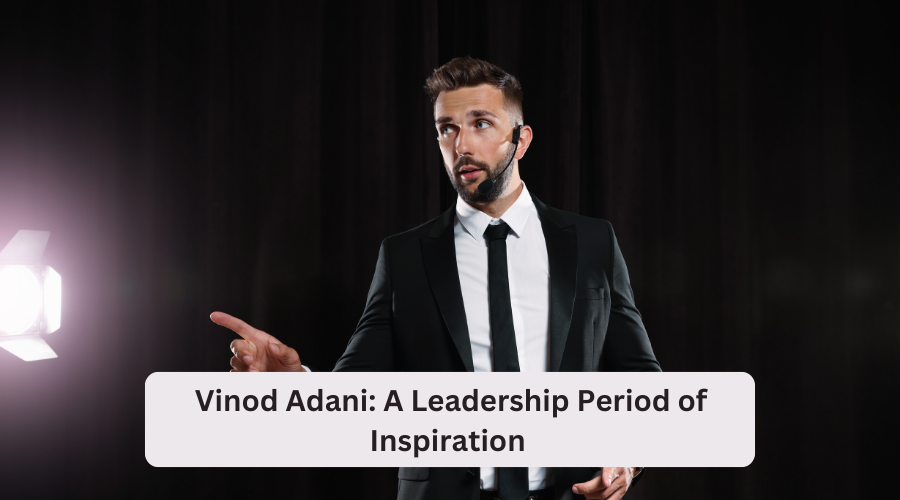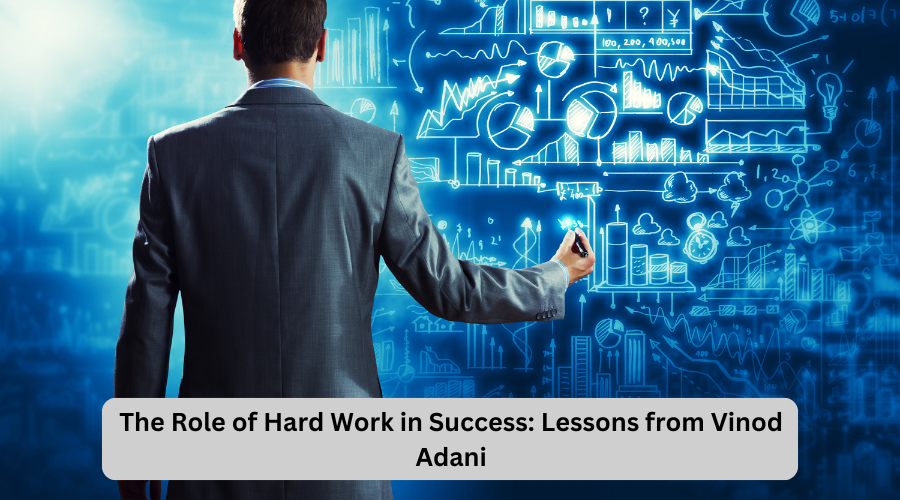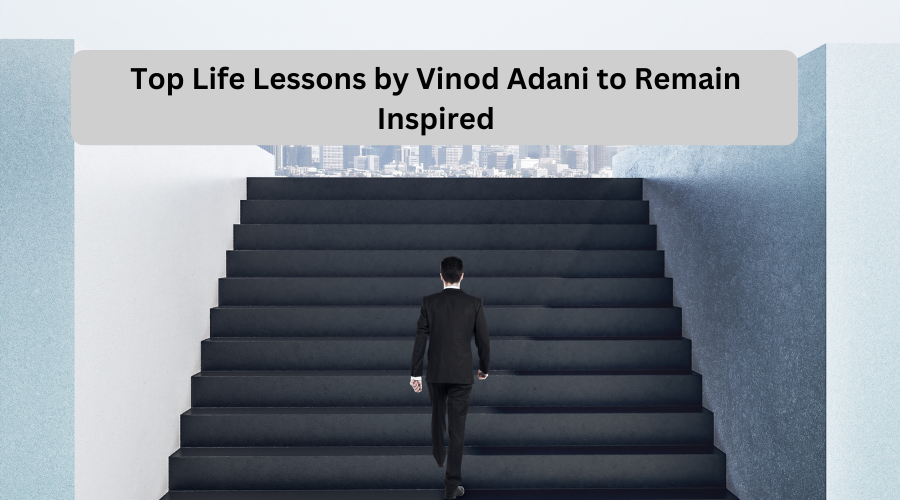In fact, change is the reality of life. However, it is we who perceive and react towards it that decides our growth and fulfillment. As far as very renowned motivational speaker Vinod Adani says, embracing change leads one to fulfill their lifetime goals and live a life of purpose. In several of his talks and writings, Adani shares actionable insights on how to approach change in a positive manner and work with it.
This blog discusses Vinod Adani’s vision to embrace change and then goes on to highlight the steps and strategies that it suggests one adopt to move through change effectively.
Understanding Change
As pointed out by Vinod Adani, a man who often emphasizes that change is the only constant in life. It may be a career shift, or there’s a new life stage, or maybe relationship dynamics are changing, or technology is advancing. “The more we resist change, the more stagnant and dissatisfied we become with life, whereas embracing the change opens doors to new experiences and opportunities.”.
This principle resonates very well with the thoughts of the Greek philosopher Heraclitus, who once said, “The only constant in life is change.” If we embrace change, according to Adani, we can grow and find fulfillment within changing circumstances.
- Key Insight: We need to understand that change is a natural and continuous part of life. Instead of fearing it, accept that it is inevitable and take it as a chance for growth.
1. Change Your Mind: From Fear to Acceptance
One of the essential lessons learnt from Vinod Adani is around the shift in mind-set related to change. Change is always correlated with uncertainty, which ultimately becomes the biggest source of fear and resistance. Change should be welcomed as a constructive force and not treated as a threat, as told by Adani.
There is also psychological support to this. An article in Journal of Personality and Social Psychology published the findings that those people who take a more positive attitude toward change are more probable to be high in resilience during times of uncertainty.
- Takeaway: Stop fearing change as a way to grow. Get into the habit of reframing by asking yourself, “What can I learn from this change?” or “How can this change really help me out in the long run?”
2. Improve flexibility and openness
Vinod Adani said that there is a need for inculcation of flexibility both in thought and in action. According to Adani, rigidity in response to change is the reason why much is missed out and stress level is high. In contrast, an open-mindedly adaptable nature has more scope to negotiate the different phases of changes easily.
This is supported by the work of Carol Dweck on mindset, where individuals possessing a flexible and growth-oriented mindset would better be able to cope with challenges and changes in life.
3. Viewing Change as an Agent of Change in Yourself
Vinod Adani continues to stress that no matter how awkward the change may be, change can be an excellent driver for personal growth. He reports about people who have gone through the most significant changes in their lives but, embracing them, are more robust and wiser, satisfied.
But this is a view of belief also vindicated by the field of Psychology. A journal, Journal of Positive Psychology, notes that individuals who consider change as a learning moment achieve much deeper self-growth and better well-being.
- Take Away: Reflect on past changes in your life and identify the lessons you gained from them. This reflection can be used to increase confidence regarding the ability to handle future changes with a positive outlook.
4. Accepting Change Through Self-Awareness and Reflection
Self-awareness is one of the very significant aspects to embrace change. According to Vinod Adani, “If you know the reason for your feelings, strengths, and areas of resistance to change, you would be better equipped to respond to transitions.” He focuses on self-reflection more than once to understand your feelings clearly regarding change and, accordingly, develop an action plan for doing it positively.
Adani’s emphasis on self-awareness aligns with research in the field of emotional intelligence. Studies show that individuals with high emotional intelligence are more adept at managing change and stress, as they are better attuned to their emotions and capable of regulating their responses.
- Takeaway: Plan time to reflect and write about how you feel about change. Identify any fear issues or limiting beliefs and concentrate on reframing them from a growth perspective.
5. Acting Under Uncertainty
One of the very common themes in all Vinod Adani talks is take action in spite of uncertainty. Adani says that the biggest mistake people make in waiting for that much-loathed moment. And he advises you to take small, deliberate steps forward despite the uncertainty.
This principle fits well within the “5-Second Rule” concept coined by Mel Robbins who says that action must be taken within five seconds to dispel hesitation and fear. “Small acts add up; the results can be huge.”
- Takeaway: Never wait for perfect conditions to act. Take small, incremental action toward the goal you desire. Any movement made-not a very big one-can gradually eliminate fear and build confidence.
6. The Act of Resilience in Welcoming Change:
Vinod Adani used to say a lot about the act of resilience about succumbing more and more successfully to life changes. According to him, resilience does not just describe potential for rebounding after a setback but the ability to keep moving forward into uncertainty. He believes that resilience is developed through a deliberate practice and an optimistic mindset.
According to the American Psychological Association, this is supported by research: resilience precisely refers to the capacity to recover well after any incidence of adversity, trauma, or stress in life; it can be developed through positive thinking, self-care, and social support.
- Takeaway: Cultivate resilience through self-care, surrounded by supportive people, and maintaining a positive outlook for life’s hardships.
7. Learning from Inspirational Stories
Vinod Adani frequently shares stories of people who embraced change and altered their lives for the better. These are great reminders of potential in times of change.
For instance, she frequently talks about a young professional, Anjali, who lost her job and subsequently faced a career crisis. Rather than yielding to the fear and low self-esteem regarding herself, Anjali did take into consideration Adani’s advice on embracing change by moving on to new opportunities she uncovered. When she cultivated the mindset of growth, and again started setting new goals for herself, she transitioned into a more fulfilling one.
- Takeaway: Draw inspiration from the stories of people who embrace change. You can learn from their experiences and apply some of their strategies in your own life transition.
8. The Power of Positive Thinking
Change embraced- Vinod Adani speaks on the theme of positive thinking which he enforces as essential for having an upbeat stance while uncertainty or even adversity. According to Adani, one can hope and be optimistic about change rather than fear it through positive thinking.
This fits with the scope of research published in the Journal of Behavioral Medicine on positive thinking and optimism, showing that these are more definitely associated with better mental health outcomes, increased resilience, and improved overall well-being.
- Take away: Practice positive thinking by focusing on what you can control and expressing gratitude for the opportunities that change brings. Challenge negative self-talk and replace it with affirmations of strength and resilience.







